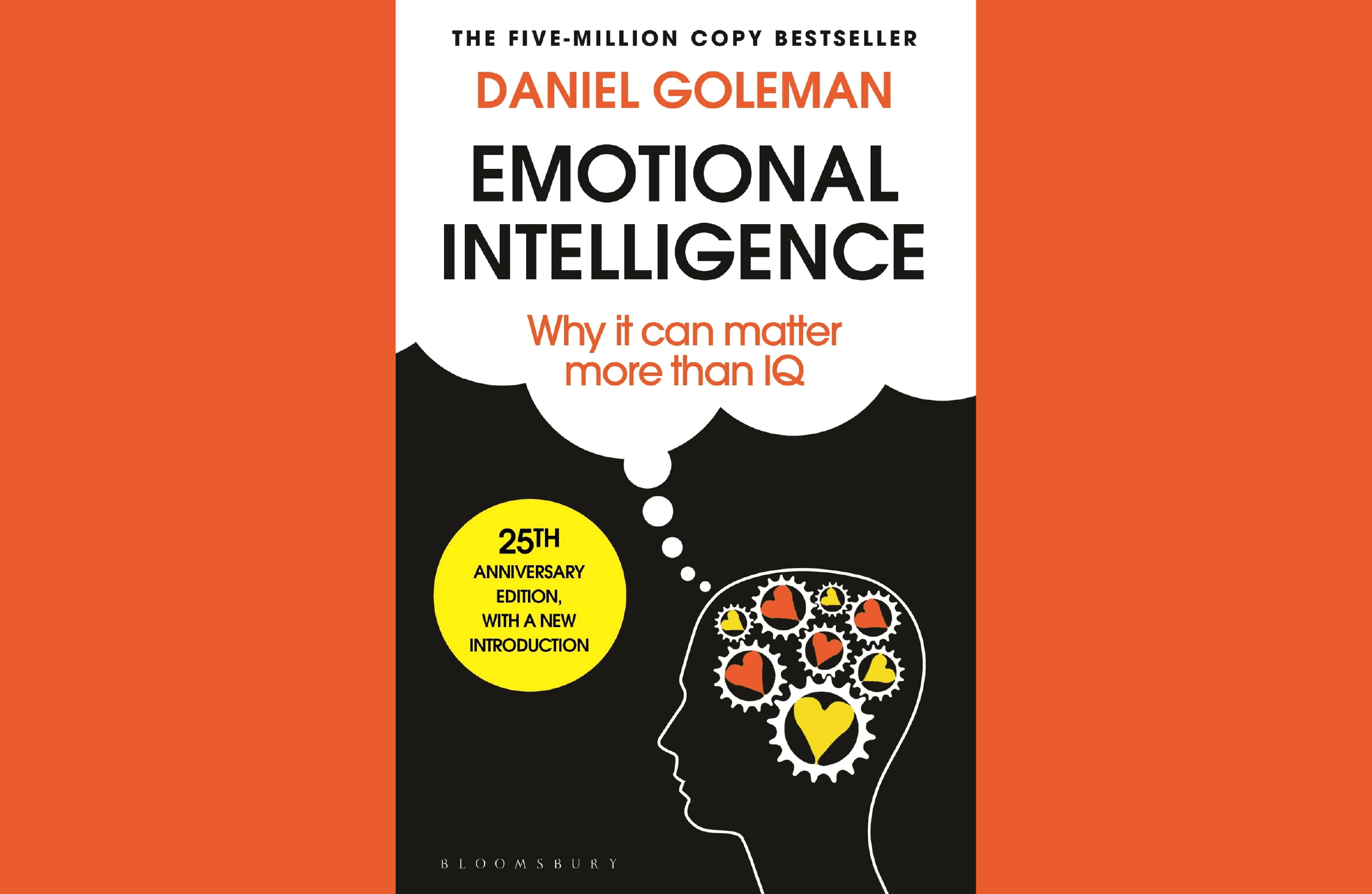Summary: "Emotional Intelligence" by Daniel Goleman

Introduction: Understanding Emotional Intelligence
In his groundbreaking book "Emotional Intelligence" Daniel Goleman introduces readers to a concept that transcends traditional measures of intelligence.
Emotional intelligence, as he defines it, is the capacity to recognize, understand, and manage one's emotions while effectively navigating the feelings of others.
This novel perspective suggests that our emotional competence plays a pivotal role in shaping our behavior, decision-making, and the quality of our relationships. Goleman's introduction sets the stage for a journey into emotions and their profound impact on our personal and professional lives.
The Nature of Emotional Intelligence
Goleman's exploration of emotional intelligence unfolds through five fundamental components. Emotional self-awareness, the first building block, involves recognizing our feelings. This foundational skill enables us to embark on emotional intelligence by gaining insight into our emotional responses. Goleman aptly notes that this self-awareness is not self-centeredness; instead, it forms the basis for understanding others.
The second component, self-regulation, is characterized by the ability to manage and control our emotional reactions. Goleman underscores that this skill is critical for maintaining composure, making rational decisions, and fostering healthy relationships. It's a fundamental aspect of emotional intelligence, preventing impulsive and emotionally charged reactions.
Motivation, the third component, involves harnessing emotions to drive us toward our goals. Goleman highlights that intrinsic motivation, a genuine passion for the task, is a hallmark of emotional intelligence. It propels individuals to persevere in facing challenges and fuels their achievement.
Empathy, the fourth component, is a cornerstone of emotional intelligence. Goleman aptly describes it as the ability to understand and share the feelings of others. According to Goleman, empathy is the bridge that connects individuals, building rapport and trust. It's a skill that enhances our capacity for meaningful relationships.
The fifth and final component, social skills, encompasses a range of abilities, from effective communication to conflict resolution and leadership. These skills enable individuals to navigate complex social situations successfully. Goleman reminds us that our social brains, relative to the size of our neocortex, are larger than most other primates, highlighting the evolutionary importance of social intelligence.
The Impact of Emotional Intelligence
Goleman's exploration of emotional intelligence extends beyond individual development to its profound impact on various facets of life. He uncovers the intricate relationship between emotions and health, noting that when emotions are in turmoil, so are our bodies. This insight underscores the connection between emotional well-being and physical health, emphasizing the importance of emotional intelligence in maintaining a balanced life.
In the realm of relationships, Goleman delves into the dynamics of emotions. He introduces the "bids system," where individuals reach out to their partners for emotional connection and support. How these bids are received significantly influences the quality of relationships. Goleman's insights provide a valuable framework for understanding and nurturing healthy connections in personal and professional life.
The workplace becomes a crucible for the application of emotional intelligence. Goleman asserts that a conducive work environment aligns with the brain's executive functions: reason, creativity, and information processing. Emotional intelligence plays a pivotal role in leadership, teamwork, and overall success in the professional arena.
Education and parenting, Goleman argues, should focus not only on academic skills but also on character development. He advocates for integrating emotional intelligence into the educational system to nurture well-rounded individuals capable of navigating life's challenges effectively.
Developing Emotional Intelligence
Goleman offers practical strategies for developing emotional intelligence. Mindfulness, the practice of being fully present and aware of one's thoughts and emotions, emerges as a powerful tool for enhancing self-awareness and emotional regulation. It's a practice that allows individuals to understand better and manage their emotional responses.
Emotion coaching, another strategy introduced by Goleman, emphasizes recognizing and validating children's feelings. This approach helps parents and caregivers teach emotional intelligence early, providing children with a strong foundation for navigating emotions and building healthy relationships.
For leaders, Goleman underscores the importance of emotional intelligence in effective leadership. Leaders who possess emotional intelligence are better equipped to connect with their teams, inspire trust, and navigate the complexities of organizational dynamics. Their leadership style is marked by empathy, self-regulation, and social skills, all essential components of emotional intelligence.
The Future of Emotional Intelligence
Goleman ventures into the future, contemplating the role of emotional intelligence in an age of advancing technology and artificial intelligence. He posits that emotional intelligence will complement AI, as human qualities like empathy, intuition, and social skills remain indispensable in many aspects of life. The ability to form meaningful connections and understand human emotions will continue to set humans apart from machines.
Furthermore, Goleman advocates for the integration of emotional intelligence into societal structures. He recognizes the importance of addressing societal inequalities and believes that social and emotional learning can be pivotal in creating a more equitable and emotionally intelligent society. By nurturing emotional intelligence from early education to the workplace and beyond, we can foster a world that values empathy, understanding, and cooperation.
The Power of Emotional Intelligence
In "Emotional Intelligence," Daniel Goleman takes readers on a transformative journey through the intricate landscape of emotions. Through compelling quotes and real-life examples, he demonstrates that emotional intelligence is not just a personal asset but a force that shapes our interactions, decisions, and overall well-being. Goleman's book is a beacon, illuminating the path to self-awareness, self-regulation, empathy, and social skills.
It offers practical guidance for individuals seeking personal growth, parents and educators nurturing the next generation, and leaders striving to create collaborative and thriving environments. Ultimately, "Emotional Intelligence" is a testament to emotions' transformative power and potential to shape a more compassionate, prosperous, and emotionally intelligent world.
